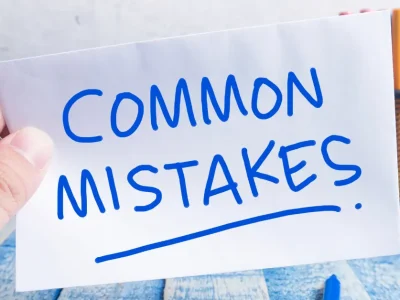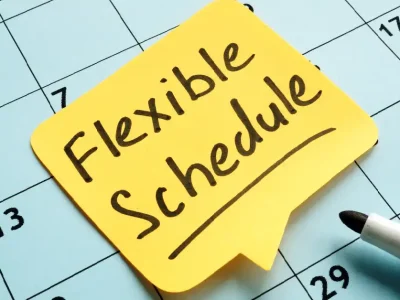By Brian Hahn
Up to 50% of your bar exam score hangs on a series of letters.
I don’t mean essays, which are also a series of letters. I’m talking about the MBE (Multistate Bar Exam)—your favorite multiple-guess section!
How’s this for anxiety?
- 1.8 minutes per question for 6 hours,
- Paranoia from seeing seven C’s in a row on your answer sheet
- 50/50 choices that make you go, “Damn, what’s with this ultimate decision?”
While the MBE is formidable and increasingly challenging, improving on the MBE is also a figure-out-able portion of the bar exam. Let me share three keys to success on the MBE:
1) Quality > quantity.
Who do you think is going to do better on the MBE?
- Person A: The person who grinded out 3,000 questions and vaguely retained the concepts.
- Person B: The person who did 1,000 questions, struggled to learn 1,000 times and can get most of those right if done again a few weeks later.
My bet is on Person B. I’d rather have you master 1,000 questions than go through the motions of 3,000 questions without learning from them.
In other words, it’s more about the quality of learning than the quantity of questions. If you can get both, all the better.
How do you know you’ve mastered the questions?
You know you understand what’s being tested if you can come back to the same question and answer it correctly with the right reasoning. You don’t have the right to say “oh I get it now” unless you can answer the question correctly later.
Of course, maintaining a 100% score is not realistic. During your preparation, the point is to learn, not to try to look good. But this is a helpful thought to make sure to emphasize your understanding.
How do you prepare in a way that helps you learn so that you can understand the concepts—and ultimately answer similar questions correctly the next time you encounter them (whether in practice or on the exam)?
The learning happens when you review the answer explanations and gain an understanding of the concept; not when you’re answering the questions.
Doing the questions is like getting on the scale. What you do in between (studying the explanations) is what changes the reading on the scale.
You can make sense of what each question is testing you by thoroughly studying the answer explanations—for each answer choice for each question you get wrong and right.
Each question is an opportunity to validate your understanding (if you chose the correct answer) or to learn the legal principle and how to apply it (if you chose a wrong answer).
If you (happen to) get a question right, you may feel like a genius. But you want to know that you got it right for the right reason. Just because you were correct doesn’t mean you were right.
You can see why it’s critical to improve the quality of your studies by thoroughly reviewing and understanding the explanations.
This is why you should pick an MBE supplement that comes with helpful answer explanations.
UWorld’s MBE QBank offers intuitive, visual explanations that can help you turn each question into a lesson or a validation. Check out the 7-day FREE trial.
2) Track how well you’re doing by smaller categories, and use this data to target your weaker areas.
“I’m hitting 70% correct,” you mumble contentedly while wondering when the library will ever reopen. “I’m on the way to passing the MBE and passing the bar exam.”
Generally speaking, yes. It seems like everyone merely tracks their overall MBE percentage score, which is fine, per se. But it’s entirely possible that you excel in one subject but struggle in another, and your overall percentage doesn’t reveal this!
What if you’re getting 90% in Criminal Law and 40% in Criminal Procedure? What if you’re getting almost all hearsay questions wrong? How would this translate to your essay performance if those weak topics show up there?
How you’re doing overall versus by category is a subtle distinction but also easy to identify (UWorld has a performance dashboard that will do this for you). Relentlessly focus on your weakest subjects (without slacking on the others) until they’re no longer your weakest.
These weak areas are low-hanging fruits you could slap into shape and use to raise your overall score.
3) Practice with a mix of real MBE questions and other styles of questions.
To prepare for essays on your bar exam, you’d practice with the past essay exams that the bar examiners have given out before. You wouldn’t go back to hypos that span pages you saw in law school.
Similarly, for the MBE, you want to use real (licensed) questions for good reason: You want to practice with the same style of questions you’ll see on the actual MBE.
You can also supplement real questions with simulated questions if you want to practice more questions. But avoid relying exclusively on them. I’d recommend a mix of 75% real and 25% simulated.
Ideally, you use questions with the format that is currently being used. Older questions have different types of calls.
Check out this article for a deeper dive into the difference between older and current styles, and how the NCBE® recommends not using questions with outdated formats.
UWorld can help with your MBE prep
UWorld is an excellent resource that equips you with everything you need to support your MBE preparation:
- Find real questions and other questions written using the current MBE style. UWorld offers 1,375+ of the newest licensed questions + hundreds of simulated questions in the current format for 1,950+ questions total
- Visual, intuitive explanations. Great for visual learners or for looking at a concept in a different way to reinforce the material
- Analytics and other tools to surgically target your weak areas
- Memorization tools, such as custom spaced-repetition flashcards
- Budget friendly. Affordable product.
Whatever you decide to do, implement the above three keys with the right tools such as the UWorld MBE QBank, and you’ll be well on your way to seeing higher scores on your next practice sets.
Visit Make This Your Last Time to join thousands of other bar takers for more actionable tips, candid discussions, and resources for bar exam preparation.
About the Author
Brian is the founder of Make This Your Last Time, where he teaches law graduates how to prepare for and pass the bar exam with a fresh take on bar preparation. He believes anyone can pass the bar with the right approach that caters to them, and he has helped thousands of readers pass the exam with his insightful materials.




